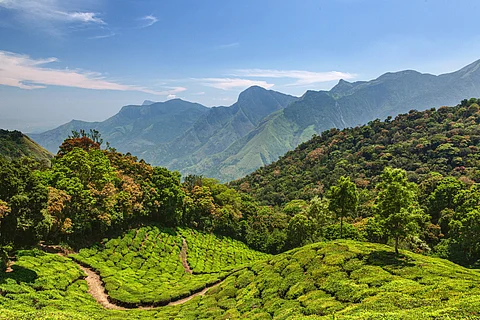

A controversial Rs 2,043-crore twin-tunnel road project in Kerala, designed to cut travel time between Kozhikode and Wayanad districts, faces a looming legal challenge. Conservationists claim that the state government secured environmental clearance by concealing crucial ecological and geological facts.
The Wayanad Prakrithi Samrakshana Samithi (WPSS), a local environmental group, said it would soon approach the Kerala High Court. The group alleged that the Expert Appraisal Committee (EAC) of the Union Ministry of Environment, Forest and Climate Change (MoEF&CC) was misled when it approved the project in mid-May, subject to over 60 conditions.
The tunnel, stretching 8.75 kilometres between Anakkampoyil in Kozhikode and Meppadi in Wayanad, is expected to boost regional connectivity and promote tourism. Proponents, including state officials, argued it would provide a vital evacuation route during climate disasters and improve access to medical care in Kozhikode.
Tourism bodies also claimed it would ease travel to Karnataka cities like Mysuru and Bengaluru and to southern destinations such as Ooty and Coorg. However, environmentalists warn that the alignment passes through ecologically fragile terrain in the Western Ghats, prone to landslides and floods.
The EAC itself noted the area’s vulnerability, referencing major landslides in 2019 and 2024. It warned that vibrations from tunnelling could destabilise surrounding slopes and structures. Approval was conditional on adherence to mitigation recommendations from the CSIR-Central Institute of Mining and Fuel Research, with a compliance report due within six months of construction beginning.
Among the conditions was the establishment of an elephant corridor at Appankappu by acquiring 3.06 hectares of forest-flanked land. The EAC also mandated a monitoring programme for the endangered Banasura Laughingthrush (locally known as Banasura Chilappan), which inhabits the Sky Islands above the proposed tunnel site.
WPSS president N Badusha claimed the approval vindicated conservationists’ concerns but said the state had still withheld key information — including the presence of the endangered bird and the corridor’s use by elephants. “The state secured Stage 1 clearance without disclosing these facts. The tunnel passes through terrain known for catastrophic landslides,” he told Down To Earth.
Badusha added that the EAC ignored several ecological concerns, which is why WPSS planned to take legal action. Widening existing ghat roads would be a safer, cheaper alternative — potentially costing just a tenth of the tunnel project, according to the group.
The EAC had initially deferred clearance during its April 4 meeting, demanding a detailed landslide risk study, especially in light of recent cloudbursts. Yet the final clearance report reportedly included only one new geological study, Geological and Geomorphological Features of Proposed Anakkampoyil-Meppadi Tunnel Alignment and Impact Area authored by K Soman, a retired geoscientist from the Centre for Earth Science Studies. Other supporting studies dated back to the project’s earlier design stages.
The State EAC had recommended clearance in March, but recommended that micro-level landslide mapping be conducted. According to official records, the Konkan Railway Corporation Ltd (KRCL), the project’s proponent, passed this request on to the Geological Survey of India.
Former state Water Resources Department director V Subhash Chandra Bose questioned the logic of greenlighting a project with so many attached conditions. “This area is classified as high-risk for landslides by the state. How can mitigation be an afterthought?” he asked.
Bose questioned the reliability of conducting impact studies after a project had already received approval, arguing that such exercises often served merely to facilitate its advancement rather than to assess feasibility.
Badusha echoed this concern, alleging that the state obtained environmental clearance from MoEF&CC using misleading information. He said the EAC followed a similar pattern — approving the tunnel project without commissioning proper multidisciplinary assessments of landslide risks in the mountainous region, especially in the wake of recent cloudburst events.
“The environmental clearance process has been hollowed out,” Badusha said, pointing to recent approvals granted by MoEF&CC bodies for controversial projects such as the Great Nicobar Island development plan, near-shore sand mining, and mega-tourism initiatives in the Lakshadweep islands. “The Wayanad tunnel is just the latest example of how the system is being manipulated to push through ecologically risky ventures,” he added.
The WPSS now plans to approach the Kerala High Court — or another appropriate forum — within the next ten days to challenge the MoEF&CC’s clearance for the tunnel project.
Critics also accused the government of pre-empting due process. Even before securing full clearance, it reportedly allocated Rs 3.8 crore for compensatory afforestation and Rs 108 crore for a 17.5-km approach road from Thiruvambadi to Marippuzha. The Rs 2,149-crore project will be funded via the Kerala Infrastructure Investment Fund Board, with execution overseen by the Uralungal Labour Contract Society under KRCL’s supervision.
Environmentalists warned that the project could destabilise mountains, displace large volumes of rock and fragment elephant corridors. “After shelving the Silver Line rail project over environmental concerns, the government now pushes this even riskier venture,” said Thiruvananthapuram-based ecologist Sreedhar Radhakrishnan.
The tunnel would run beneath Vavul Mala, the highest peak in Kozhikode district, at 7,677 feet. The region — part of the ecologically rich Chooralmala–Mundakkai range — lies at the tri-junction of Wayanad, Kerala and the Nilgiris in Tamil Nadu. It hosts endemic species and receives some of the highest monsoon rainfall in southern India.
Critically, Chembra Peak, a popular ecotourism site above the proposed tunnel, harbours a shola forest and the heart-shaped Hridayasaras lake — home to several rare bird species, including the Banasura Laughingthrush. In August 2019, the Puthumala area nearby experienced a devastating landslide, killing seven people and leaving six missing.
Despite government assurances, local residents remained sceptical. Some, like Wayanad hospitality industry member K. Raveendran, advocated for expanding existing routes instead of “blasting through a mountain in a disaster-prone region.”